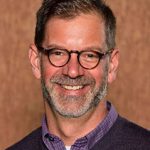“We are not what we know, but what we are willing to learn” -M.C. Bateson
In the last years of study in the ELCA, we have learned that:
Even as we confess one Lord, one faith, and one baptism, we hold different points of view about human sexuality; especially our church’s willingness to bless same-sex unions and to roster gay and lesbian people in such unions for professional ministries of the church.
Many of our differences in thinking about human sexuality and the church are rooted in our biblical interpretation. Too often such differences result from using isolated portions of Scripture to footnote our various positions.
Our beliefs about sexuality and the church are closely linked to our personal experiences- experience as gay and lesbian people, and experiences of varying degrees of relationship to them.
In our society as a whole and in the ELCA, younger people are more supportive of openness towards gays and lesbians while older people are less supportive of such openness. Younger people are also more likely than older people to personally know someone who is gay.
Many are in pain over these issues-both inside and outside the church. Still, all of us can grow when we enter the conversations with humility and charity.
Votes don’t resolve differences of understanding and disciplinary actions don’t decide the validity of dissenting ministries. As wise Gamaliel said, “let them alone; because if this undertaking is of human origin, it will fail; but if it is of God, you will not be able to stop it-in that case you may even be found fighting against God” (Acts 5:38-39).
As we move forward in learning together in the ELCA, we think it is important to ask:
Can we confess that God does not fit neatly in boxes of our own design?
Can we humbly seek the Bible’s authoritative message for us today and tomorrow using the best of our Lutheran tradition regarding interpretation of scripture?
Can we say “no” to fundamentalist patterns that use very selective Scriptural passages?
Can we learn the way our own assumptions shape our thinking and benefit from listening to diverse faithful points of view?
Can we engage in discussion that admits Scripture and tradition are best understood when placed respectfully in the context of emerging insights from a wide range of fields – history, sociology, genetics, medicine, psychology, etc?
Can we acknowledge our shared responsibility for the future of the church?
In closing, we offer this prayer from the church in Kenya:
From the cowardice that dares not face new truth
From the laziness that is contented with half-truth
From the arrogance that thinks it knows all truth,
Good Lord, deliver us.


